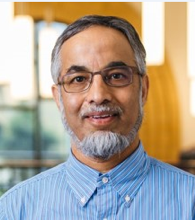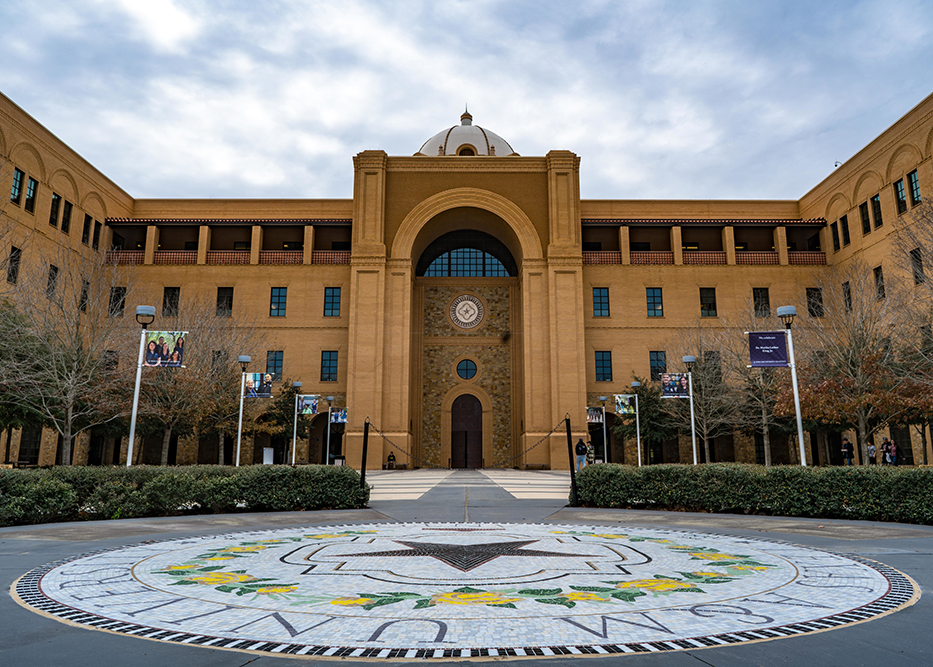NSF Grant Projects
Jag-AI: AI Ready Institution Transforming Tomorrow's Research and Education with AI Focused on Health and Security, Award # 2334243
Jag-AI’s primary goal is to establish a robust Artificial Intelligence (AI) infrastructure at Texas A&M University-San Antonio by enhancing the research capacity of the institution and developing AI-focused curricula and training. Jag-AI will achieve this goal through two initiatives:
- Foundational and Use-Inspired AI Research Initiative
- This initiative focuses on research aimed at improving healthcare quality of life, transforming national defense-security, and effective utilization of cloud computing resources.
- AI for All Education and Training Initiative
- The goal of this initiative is to generate interest, increase awareness and advance careers in AI by developing curricula and providing training to faculty and researchers.
The integration of AI into research and academic programs will significantly enhance A&M-San Antonio's goal of becoming a national model for academic success — specifically regarding quality of life, national defense and security and lifelong education. Developments in AI will provide educational opportunities, encourage multi-disciplinary research collaboration and foster partnerships with industry and government agencies to benefit economically disadvantaged students across Texas. Jag-AI strives to accelerate AI research, education and workforce development for the benefit of both A&M-San Antonio and the communities it serves.
SmartSAT project develops a customizable secure mobile app for SA public transit that provides users with enhanced, accurate information about transit service and enables data collection to evaluate the impact of poverty, race, and ethnicity on the experience of transit users. The resulting SmartSAT project will (1) provide riders real-time information of arrival times and bus capacity with limited seats available, (2) build an in feedback on-trip experiences, (3) utilize intelligent technology and conduct data-driven decision making when analyzing data, (4) provide reliable and accessible transit with convenient and equal access to get places, and (5) integrate SA community stakeholders into a future smart and connected city in the long run. Researchers and students from diverse disciplines (sociology, computer science, cybersecurity, & information science) work collaboratively to achieve project success. The outcomes of this project will primarily benefit low-income SA residents, especially the large Hispanic population. SmartSAT anticipates to ultimately improve SA mobile network infrastructure and to connect more workers to jobs and workforce training, more students to educational opportunities, and more residents to social and leisure activities.
Recruiting and Retaining Students into Computing, Award # 1832433
This project (RETAIN) uses a multipronged approach to inspire, increase, educate and retain a large, underrepresented pool to pursue degrees for careers in computing and cybersecurity, a discipline in which there is an acute national demand of professionals. The project RETAIN targets Hispanic students in rural and underrepresented areas who will be taught cybersecurity beginning with foundation courses, to increase their awareness and demand for this field. It builds a pipeline for underrepresented students who have social, economic, and education needs in computing and cybersecurity, by partnering with a rural community college (Laredo), an urban community college (San Antonio) and its own students. Building upon strong, collaborative relationships formed between the institutions will contribute to project effectiveness.
Contact Information
Interested people about the program should contact the PI, Dr. Jeong Yang, at:
Mailing Address:
Department of Computing and Cybersecurity
Center of Information technology and Cybersecurity
Attention: NSF RETAIN
Texas A&M University-San Antonio
One University Way, San Antonio, TX 78224
Phone: (210) 784-2315
E-mail: Jeong Yang email
You can also contact the Administrative Associate Susan Tamayo for more information at:
Phone: (210) 784-2302
Fax: (210) 784-2398
E-mail: Susan Tamayo email
Goals and Objectives
The goal of this project (RETAIN) is to increase the retention and transfer from two-year to
The objectives of the project are to:
- Broaden, scaffold and strengthen the pipeline of Hispanic students, including women, entering the field of computing and
cybersecurity . - Develop an innovative CS undergraduate curriculum with
cybersecurity integrated throughout the curriculum, to meet the demands of the workforce. - Increase the retention rates of Hispanic students, including women.
- Strengthen the marketability of graduating students by providing them with a Certificate in
cyber security education.
The anticipated outcomes of RETAIN are an increase in the number of students who are enrolled, and those who remain enrolled in computing and
About the NSF Grants Program
 Recruiting and Retaining Students into Computing, Award # 1832433
Recruiting and Retaining Students into Computing, Award # 1832433
The innovative components of this project are (a) increasing retention by incorporating an engaging, evidence-based model called the Model-Eliciting Activities (MEA), for teaching
Project Management Team

Dr. Jeong Yang, assistant professor in the Department of Computing and Cybersecurity, leads the project as a principal investigator. She directs overall project development, performance, and evaluation for assuring successful project completion.
Phone: 210.784.2315
E-mail: Jeong Yang email

Dr. Akhtar Lodgher, professor in the Department of Computing and Cybersecurity, serves as a co-principal investigator for the project.
Phone: 210.784.2353
E-mail: Akhtar Lodgher email

Dr. Young Rae Kim, assistant professor in the Department of Curriculum and Instruction, serves as a co-principal investigator for the project.
Phone: 210.784.2534
Email: Young Rea Kim email
The team is also partnering with computing departments of rural Laredo Community College and urban San Antonio College to implement this project. Mr. Robert Moore, Chair, Computer Technology Department at Laredo Community College and Mr. Troy Touchette, Chair, Computer Information Systems at San Antonio College, will serve as the collaborators and champions at these respective colleges for integrating the modules, facilitating the partnership activities and ensuring that project activities at their institutions are conducting smoothly.
Dr. Michelle Janysek, a field residency and clinical teaching specialist in the Educator Preparation Program (EPP), will be an independent evaluator to conduct the project evaluation by quantitatively and qualitatively measuring the data collected during the project period to ensure that the project achieves its goals.
Recruiting and Retaining Students into Computing

